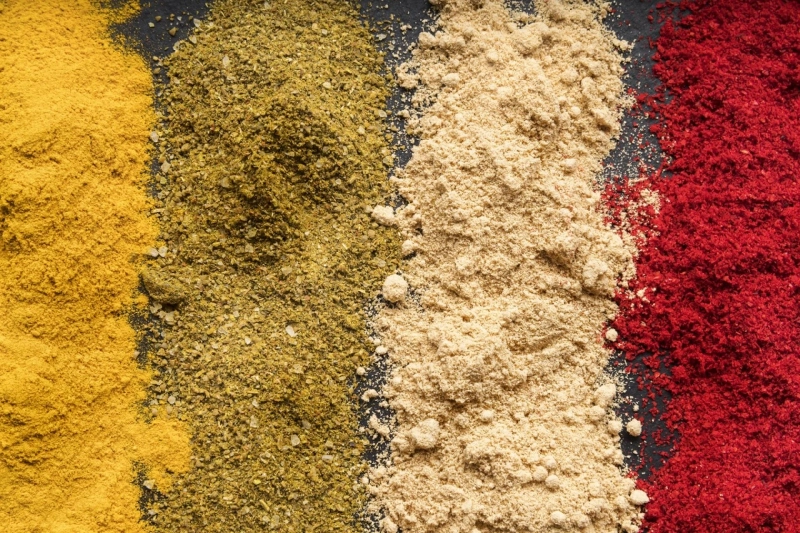In today’s world of chemical-laden beauty and wellness products, herbal powders are emerging as natural, effective, and eco-conscious alternatives. Derived from dried and finely ground plant parts such as leaves, roots, seeds, and flowers, herbal powders have been used for centuries in Ayurveda and holistic care. Whether you want to treat acne, improve hair growth, or detox your body, there’s likely a herbal powder that can help you.
In this blog, we will explore what herbal powders are, their various types, their benefits for skin, hair, and health, and how to use them effectively.
What is Herbal Powder?
Herbal powder is made by drying natural herbs and grinding them into a fine powder. These powders are rich in active compounds like flavonoids, alkaloids, and essential oils that offer various therapeutic benefits.
Key Features:
- 100% natural and plant-based
- Free from chemicals and preservatives
- Versatile use in skincare, haircare, and internal wellness
- Safe for regular use when used correctly
Top Benefits of Herbal Powders
Herbal powders can transform your beauty and wellness routines when used consistently. Here are the key benefits:
For Skin:
- Fights Acne & Pimples: Herbal powders like neem, tulsi, and multani mitti have anti-bacterial and anti-inflammatory properties.
- Brightens Complexion: Many powders help in exfoliation and promote radiant skin.
- Reduces Oiliness & Tightens Pores: Clay-based and cooling powders help control sebum and minimize pores.
For Hair:
- Strengthens Hair Roots: Amla, bhringraj, and hibiscus powders nourish the scalp.
- Promotes Hair Growth: Boosts blood circulation to hair follicles.
- Treats Dandruff: Neem, reetha, and shikakai help cleanse and soothe the scalp.
For Wellness:
- Boosts Immunity: Powders like tulsi and amla support the immune system.
- Aids Digestion & Detox: Some edible herbal powders promote gut health.
- Relieves Stress: Adaptogenic powders like brahmi and ashwagandha calm the mind.
Common Types of Herbal Powders & Their Uses
Here’s a list of widely used herbal powders and what they’re best for:
1. Neem Powder
- Properties: Antibacterial, antifungal, detoxifying
- Uses: Acne face masks, scalp treatments, anti-dandruff shampoos
2. Amla Powder
- Properties: Rich in Vitamin C, antioxidant, hair-strengthening
- Uses: Hair oils, hair masks, immunity-boosting drinks
3. Multani Mitti (Fuller’s Earth)
- Properties: Absorbs excess oil, deep-cleansing
- Uses: Oil-control face packs, body masks, skin detox treatments
4. Hibiscus Powder
- Properties: Anti-aging, supports hair thickness
- Uses: Hair masks, exfoliating scrubs, lip scrubs
5. Shikakai Powder
- Properties: Mild natural cleanser, pH-balancing
- Uses: Hair shampoo base, scalp clarifying treatments
6. Brahmi Powder
- Properties: Calming, memory-enhancing, nourishing
- Uses: Herbal teas, scalp massage blends, mental clarity tonics
7. Tulsi Powder
- Properties: Antibacterial, immunity-boosting
- Uses: Steam facials, detox drinks, acne treatments
How to Use Herbal Powder: Simple DIY Recipes
Herbal powders are incredibly versatile. Here’s how you can use them for your skin, hair, and internal health:
DIY Face Mask
Ingredients:
- 1 tsp neem or multani mitti powder
- 1 tsp rose water or aloe vera gel
Steps:
- Mix the ingredients into a paste.
- Apply to your face and leave it on for 15 minutes.
- Rinse off with lukewarm water.
Hair Mask for Growth
Ingredients:
- 1 tbsp amla powder
- 1 tbsp hibiscus powder
- 2 tbsp curd or water
Steps:
- Mix well and apply from root to tip.
- Leave for 30–40 minutes.
- Rinse with lukewarm water or herbal shampoo.
Herbal Tea for Immunity (Consult a doctor first)
Ingredients:
- ½ tsp tulsi powder
- ½ tsp amla powder
- 1 cup warm water
Steps:
- Stir powders into warm water.
- Let it steep for 5–10 minutes.
- Strain and sip once daily.
Where to Buy Herbal Powders?
If you're looking for pure, chemical-free herbal powders, always choose a trusted source. Brands like VedaOils provide:
- Lab-tested, cruelty-free herbal powders
- Wholesale prices for bulk orders
- Wide variety for skincare, haircare, and wellness
Tips for Using Herbal Powders Safely
- Do a Patch Test: Especially if you have sensitive skin or allergies.
- Use Clean Utensils: Always use clean bowls and spoons while preparing DIY recipes.
- Store Properly: Keep powders in airtight containers in a cool, dry place.
- Consult Before Consuming: Not all herbal powders are edible or suitable for internal use.
Final Thoughts
Herbal powders are a time-tested solution for natural skin, hair, and body care. They are easy to use, affordable, and effective. Whether you’re a skincare enthusiast, a DIY beauty lover, or someone looking for organic alternatives, herbal powders are an excellent choice to include in your wellness journey.
Frequently Asked Questions (FAQs)
Q1. Can I mix different herbal powders together?
Yes, you can mix compatible powders like amla, hibiscus, and shikakai for hair or neem and multani mitti for face packs.
Q2. Are herbal powders safe for daily use?
Most are safe for 2–3 times a week use. Overuse may dry out your skin or scalp.
Q3. Are herbal powders good for sensitive skin?
Yes, but always do a patch test first.
Q4. Can I eat herbal powders?
Only if they’re edible and certified for internal use. Always consult a healthcare expert first.



